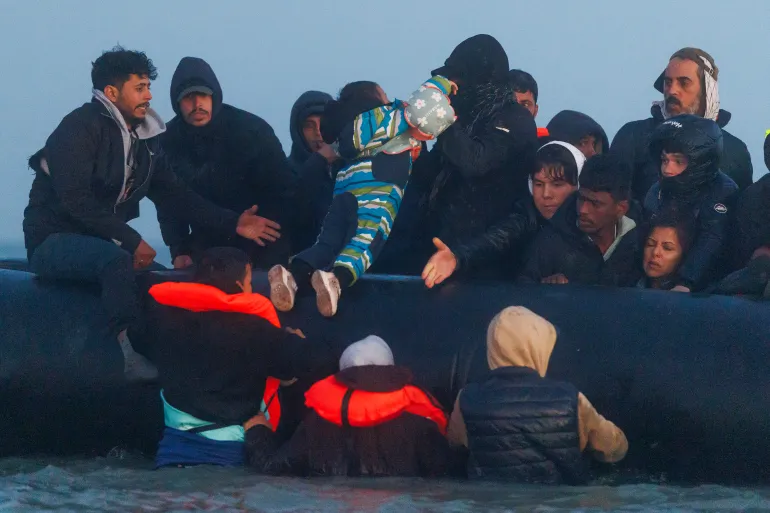The UK and France signed a one-in-one-out migrant deal in July 2024 to control the flow of people crossing the English Channel in small boats. But so far, only four men have been deported back to France under this agreement. This is far less than the target of 50 migrants per week set when the deal was first announced. The scheme was meant to cut down the number of people making dangerous journeys from France to the UK, but early results show it has had very little impact.
Under the deal, France accepts asylum seekers who crossed into the UK but cannot prove family ties there. In return, the UK takes one migrant from France who can show a family connection in Britain. The plan was introduced after talks between Prime Minister Keir Starmer and President Emmanuel Macron in London. It was hoped that people with family in the UK would wait to be brought over legally, while others without such ties would not attempt the risky boat journeys.
However, experts say the plan is unlikely to stop people who are determined to reach the UK. More than 32,000 people have already crossed the Channel this year, and on a single day in September, over 1,000 arrived in 13 boats. With so many still making the journey, the return of just four migrants in two months highlights how limited the deal has been.
Some of those facing deportation have also challenged the decision in court. One Eritrean man won a temporary block on his removal after claiming he was a victim of modern slavery. Another was returned to France and told he had only eight days to either claim asylum there or go back to his home country. These legal battles raise further questions about how effective and sustainable the deal can be.
Critics argue the scheme is more symbolic than practical. Even if the UK managed to send 50 migrants back every week, it would still only mean 2,600 people returned in a year. This is tiny compared to the thousands who arrive annually. The agreement does not address the deeper reasons why people attempt the dangerous journey in the first place.
Polls show growing frustration in the UK over immigration. Since Labour’s election win, Starmer’s popularity has dropped sharply, while the Reform UK party, which takes a tougher line on migration, has gained support. Amnesty International condemned the deal as cruel and costly, saying it treats refugees like parcels instead of people. Meanwhile, opposition politicians call it a gimmick that will not change the situation at Britain’s borders.
Supporters of the deal argue it is too early to judge its success. Starmer’s office says the arrangement is not failing and remains confident it will reduce crossings over time. But some French officials have already called the plan “experimental” and warned that it may be ended if it does not deliver results.
Experts suggest that expanding safe and legal migration routes would be a better solution. For example, Ukrainians rarely attempt small boat crossings because legal schemes, such as the Homes for Ukraine programme, give them safer options. Without stronger cooperation with European institutions and databases like Eurodac, which the UK lost after Brexit, the problem of repeat attempts and risky crossings will likely continue. For now, the UK-France migrant deal remains a symbolic step with little sign of real change.

